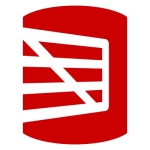What is our primary use case?
The initial setup of Oracle Essbase is dependent on whether you select BSO or ASO cubes. First, you need to set up the type of information and once the type of cubes is defined, you need to define the dimension types. You keep working with the business to have all the dimensions migrated and everything they want in Oracle Essbase.
Apart from that, the only difficult thing is if finance is not clear on the final result they want, it will be really difficult to have Oracle Essbase provide added value to the business. Finance needs to be clear on the final result, and you need to have a space for pricing analysis, so let's get the data from your CRM or from other management modules.
However, it's a big investment for pricing alone, and I don't recommend anyone to use Oracle Essbase for only one thing. You can do everything in terms of finance in Oracle Essbase as long as you know what you want and expect clear outcomes because in Oracle Essbase, you have to develop everything manually, unlike in EPM where modules are already developed.
What is most valuable?
What I appreciate most about Oracle Essbase is my comprehensive knowledge of all its features, although my UNIX knowledge is limited, requiring assistance for server installations. I have worked with finance in defining calculation scripts, which is the most complex aspect, and also worked on transformation processes.
While Oracle Essbase has evolved into EPM, my knowledge of Oracle Essbase translates directly to understanding EPM.
The benefits of using Oracle Essbase include avoiding data silos, as previously, Finance had data scattered across different sources such as CRM, ERP, and other satellite sources. With Oracle Essbase, everything is centralized in a comprehensive financial statement analysis. This centralization allows for complete management of budget, actuals analysis, and forecast.
What needs improvement?
A significant area for improvement in Oracle Essbase is that financial statement analysis, CAPEX and OPEX analysis, and financial consolidation must be done manually, as Oracle Essbase doesn't include the financial consolidation module that is available in EPM.
While you can analyze market trends, track expenses, and compare actual expenses against budget and forecast, currency variances can be handled in both Oracle Essbase and Excel.
You can maintain aggregation values of all your accounts in finance within Oracle Essbase. Period-end balances and monthly transactions can be included, though it's primarily designed for aggregation values. Different cubes in Oracle Essbase can contain all necessary data, eliminating the need to source data from multiple reports for financial analysis, which can be accomplished through the data integrator.
How was the initial setup?
The initial setup of Oracle Essbase is dependent on whether you select BSO or ASO cubes. First, you need to set up the type of information and once the type of cubes is defined, you need to define the dimension types. You keep working with the business to have all the dimensions migrated and everything they want in Oracle Essbase.
Buyer's Guide
Oracle Essbase
January 2026
Learn what your peers think about Oracle Essbase. Get advice and tips from experienced pros sharing their opinions. Updated: January 2026.
882,410 professionals have used our research since 2012.
What other advice do I have?
The pricing functionality in Oracle Essbase is handled through the model you develop, where each cube can be customized with members and dimensions for pricing and entities. You can implement any functionality, but everything needs to be developed within Oracle Essbase.
Based on comprehensive knowledge of Oracle Essbase, I rate it seven out of ten. I recommend companies evaluate not just Oracle Essbase, but also Oracle EPM since it includes Oracle Essbase with predefined functionalities. In EPM, features such as actuals analysis cube and planning modules are pre-built, though customization options remain available. If EPM didn't exist, Oracle Essbase would deserve a nine, but its evolution to EPM justifies the seven-out-of-ten rating to using only the Essbase legacy platform or Cloud service.
Disclosure: My company does not have a business relationship with this vendor other than being a customer.





